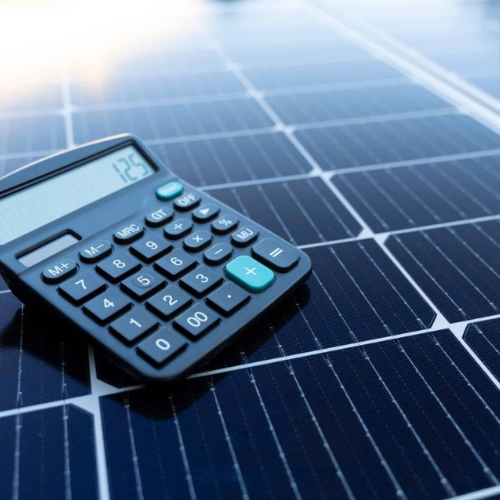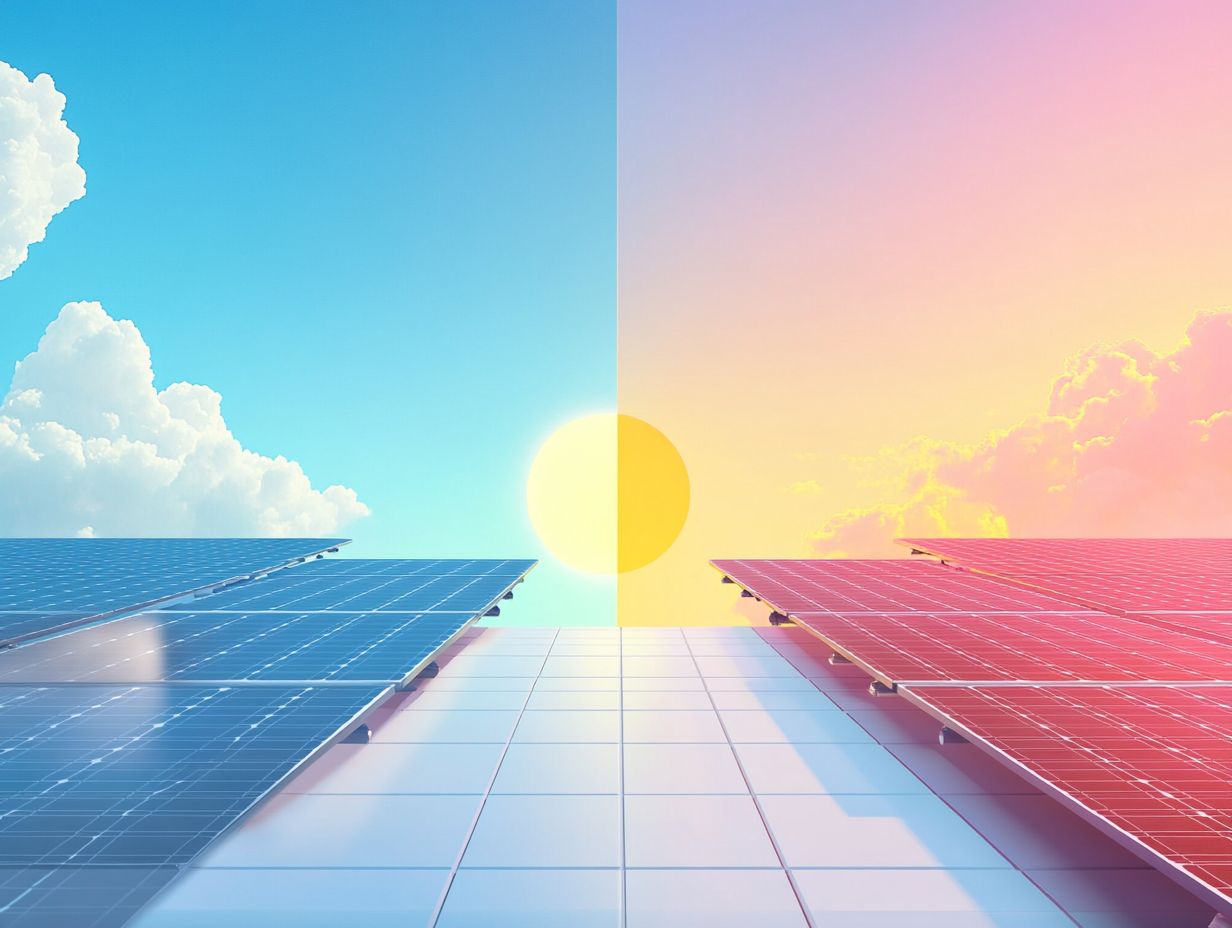Contents
- 1 Factors to Consider When Choosing Solar Panels for Boats
- 2 Top Solar Panel Brands for Marine Use
- 3 Installation and Maintenance Tips for Solar Panels on Boats
- 4 How to Calculate the Right Size of Solar Panels for Your Boat
- 5 Maximizing the Efficiency of Solar Panels on Boats
- 6 Integrating Solar Panels with Other Energy Sources on Boats
- 7 Case Studies: Successful Implementation of Solar Panels on Boats
- 8 FAQs
- 8.1 What are the best solar panels for boats?
- 8.2 What factors should be considered when choosing solar panels for boats?
- 8.3 What are the benefits of using solar panels on boats?
- 8.4 How do solar panels for boats differ from solar panels for other applications?
- 8.5 What are some popular brands of solar panels for boats?
When you think about the open waters, the freedom of sailing, and the thrill of adventure, the last thing you want to worry about is running out of power. This is where solar panels come into play, offering a sustainable and efficient solution to your energy needs while on the water. By harnessing the sun’s energy, solar panels provide a reliable source of electricity that can power everything from navigation systems to onboard appliances.
Imagine being able to enjoy your time on the boat without the constant anxiety of battery depletion or the noise of a generator. With solar panels, you can embrace a quieter, more eco-friendly experience. Moreover, solar panels can significantly reduce your reliance on fossil fuels, making your boating experience more environmentally friendly.
As you sail through pristine waters, you can feel good knowing that you are minimizing your carbon footprint. The long-term savings on fuel and maintenance costs are also noteworthy. While the initial investment in solar technology may seem daunting, the reduction in fuel expenses and the potential for energy independence can lead to substantial savings over time.
You’ll find that investing in solar panels not only enhances your boating experience but also contributes positively to the environment. Get your free solar assessment at https://www.solarenergy4u.org/free-pro-advice/.
Key Takeaways
- Solar panels for boats provide a sustainable and cost-effective energy source, reducing reliance on fuel and minimizing environmental impact.
- When choosing solar panels for boats, consider factors such as size, efficiency, durability, and compatibility with marine environments.
- Top solar panel brands for marine use include SunPower, Renogy, and Go Power!, known for their high-quality and reliable products.
- Proper installation and regular maintenance are crucial for maximizing the performance and lifespan of solar panels on boats.
- Calculating the right size of solar panels for your boat involves considering energy consumption, available space, and sunlight exposure.
Factors to Consider When Choosing Solar Panels for Boats
Selecting the right solar panels for your boat involves several critical considerations. First and foremost, you need to assess the available space on your vessel. Boats come in various shapes and sizes, and the amount of surface area available for solar panel installation will dictate your options.
You should measure the area where you plan to mount the panels and consider how many panels you can fit without compromising aesthetics or functionality. Additionally, think about whether you want to install fixed panels or portable options that can be moved as needed. Another essential factor is the type of solar panel technology you wish to use.
There are primarily three types: monocrystalline, polycrystalline, and thin-film panels. Monocrystalline panels are known for their high efficiency and space-saving design, making them ideal for smaller boats with limited surface area. Polycrystalline panels are generally more affordable but may require more space due to their lower efficiency.
Thin-film panels are lightweight and flexible, which can be advantageous for certain boat designs but often have lower efficiency rates. Evaluating these options based on your specific needs will help you make an informed decision.
Top Solar Panel Brands for Marine Use

When it comes to choosing solar panels for marine applications, several brands stand out due to their quality, durability, and performance. Renogy is one of the most recognized names in the industry, offering a wide range of solar products specifically designed for marine use. Their panels are known for their high efficiency and robust construction, making them suitable for harsh marine environments.
Additionally, Renogy provides excellent customer support and a variety of mounting options, ensuring that you can find a solution that fits your boat perfectly. Another reputable brand is SunPower, which is renowned for its high-efficiency solar cells. SunPower panels are often considered some of the best on the market due to their superior performance and longevity.
They are designed to withstand extreme weather conditions, making them an excellent choice for boaters who frequently venture into challenging environments. Additionally, brands like Victron Energy and Goal Zero offer comprehensive solar solutions that include not just panels but also charge controllers and batteries tailored for marine applications. Exploring these brands will help you find reliable products that meet your energy needs while out on the water.
Installation and Maintenance Tips for Solar Panels on Boats
| Tip | Description |
|---|---|
| Choose the right location | Ensure that the solar panels are installed in a location on the boat that receives maximum sunlight without being obstructed by other structures. |
| Use marine-grade panels | Invest in solar panels specifically designed for marine environments to ensure durability and longevity. |
| Secure the panels properly | Use strong and secure mounting hardware to prevent the panels from shifting or getting damaged during rough seas. |
| Regular cleaning | Keep the solar panels clean from dirt, salt, and debris to maintain optimal efficiency. |
| Inspect for damage | Regularly inspect the panels for any signs of damage or wear and tear, and address any issues promptly. |
Installing solar panels on your boat may seem like a daunting task, but with careful planning and execution, it can be a straightforward process. Start by selecting a suitable mounting location that receives maximum sunlight exposure throughout the day. Ensure that the surface is clean and free from obstructions before securing the panels in place.
Depending on your boat’s design, you may need to use brackets or adhesive mounts to attach the panels securely. It’s crucial to follow the manufacturer’s instructions during installation to avoid any potential issues down the line. Once your solar panels are installed, regular maintenance is key to ensuring their longevity and efficiency.
Keep an eye on dirt, salt, and debris accumulation on the surface of the panels, as these can hinder performance. A gentle wash with fresh water and a soft cloth will usually suffice to keep them clean. Additionally, inspect the wiring and connections periodically for any signs of wear or corrosion, especially in a marine environment where saltwater can be particularly damaging.
By staying proactive with maintenance, you can maximize the lifespan of your solar system and enjoy uninterrupted power while sailing.
How to Calculate the Right Size of Solar Panels for Your Boat
Determining the appropriate size of solar panels for your boat involves calculating your energy consumption and understanding how much sunlight you can expect to receive while at sea. Start by listing all electrical devices you plan to use onboard, including lights, navigation equipment, refrigerators, and any other appliances. Note their wattage ratings and estimate how many hours each device will be used daily.
This will give you a clearer picture of your total daily energy consumption in watt-hours. Once you have an estimate of your daily energy needs, consider the average sunlight hours available in your cruising area. This varies by location and season but typically ranges from 4 to 6 hours of effective sunlight per day.
To calculate the size of solar panels required, divide your total daily watt-hour consumption by the number of sunlight hours available. This will give you an idea of how many watts of solar panels you need to install to meet your energy demands effectively. Remember to factor in some buffer capacity to account for cloudy days or increased energy usage.
Maximizing the Efficiency of Solar Panels on Boats

To get the most out of your solar panels while boating, there are several strategies you can employ to enhance their efficiency. One effective method is optimizing their angle towards the sun. Solar panels perform best when they are perpendicular to sunlight; therefore, adjusting their tilt based on your geographical location and time of year can significantly improve energy capture.
If possible, consider using adjustable mounts that allow you to change the angle of your panels easily. Additionally, keeping your solar panels clean is crucial for maintaining their efficiency. As mentioned earlier, dirt and grime can accumulate on the surface over time, blocking sunlight from reaching the cells.
Regular cleaning with fresh water and a soft cloth will help ensure optimal performance. Furthermore, consider using a charge controller that maximizes energy capture by preventing overcharging and optimizing battery usage. By implementing these strategies, you can ensure that your solar system operates at peak efficiency throughout your boating adventures.
Integrating Solar Panels with Other Energy Sources on Boats
While solar panels provide a fantastic renewable energy source for your boat, integrating them with other energy systems can create a more robust power solution. Many boaters choose to combine solar power with wind turbines or traditional generators to ensure they have a reliable energy supply regardless of weather conditions or sunlight availability. Wind turbines can generate electricity during overcast days or at night when solar panels are inactive, providing a complementary energy source.
Additionally, incorporating battery storage systems allows you to store excess energy generated during sunny days for use when needed most. Lithium-ion batteries are becoming increasingly popular due to their lightweight design and high energy density compared to traditional lead-acid batteries. By creating a hybrid system that includes solar panels, wind turbines, and battery storage, you can achieve greater energy independence while enjoying all that boating has to offer.
Case Studies: Successful Implementation of Solar Panels on Boats
Numerous boaters have successfully integrated solar panels into their vessels, showcasing the benefits and versatility of this technology in marine environments. One notable case is that of a couple who converted their sailboat into a fully electric vessel powered by solar energy. By installing high-efficiency monocrystalline panels on their deck along with a robust battery storage system, they were able to eliminate their reliance on fossil fuels entirely.
This transformation not only reduced their environmental impact but also provided them with significant cost savings over time. Another inspiring example comes from a charter company that outfitted its fleet with solar panels to reduce operational costs and promote sustainability in tourism. By equipping each boat with solar technology, they were able to power onboard amenities such as lighting and refrigeration without relying on noisy generators or expensive fuel sources.
This initiative not only enhanced customer satisfaction by providing a quieter experience but also positioned the company as an environmentally conscious operator in a competitive market. In conclusion, embracing solar technology for your boat offers numerous benefits ranging from energy independence to environmental sustainability. By understanding how to choose the right panels, install them effectively, and maintain them properly, you can enjoy all that boating has to offer without compromising on power or comfort.
Whether you’re planning weekend getaways or extended voyages, integrating solar energy into your marine lifestyle is a decision that pays dividends both financially and ecologically.
If you are looking for the best solar panels for boats, you may also be interested in learning about solar incentives that can help offset the cost of your investment. Check out this article to understand how you can take advantage of tax credits, rebates, and other incentives to make your solar panel purchase more affordable. Additionally, maximizing efficiency with rigid solar panels is crucial for getting the most out of your system. Learn more about how to optimize your setup in this article.
FAQs
What are the best solar panels for boats?
The best solar panels for boats are typically lightweight, durable, and efficient. They should be able to withstand the marine environment and provide reliable power for the boat’s electrical systems.
What factors should be considered when choosing solar panels for boats?
When choosing solar panels for boats, it’s important to consider factors such as the size of the boat, the available space for mounting the panels, the power requirements of the boat’s electrical systems, and the specific environmental conditions the panels will be exposed to.
What are the benefits of using solar panels on boats?
Using solar panels on boats can provide a reliable source of power for electrical systems, reduce the need for fuel-powered generators, and lower overall energy costs. Solar panels also have minimal environmental impact and can help reduce a boat’s carbon footprint.
How do solar panels for boats differ from solar panels for other applications?
Solar panels for boats are typically designed to be more compact, lightweight, and durable compared to solar panels for other applications. They are also often designed to withstand the harsh marine environment, including exposure to saltwater and extreme weather conditions.
What are some popular brands of solar panels for boats?
Some popular brands of solar panels for boats include Renogy, SunPower, Go Power!, and HQST. These brands offer a range of solar panel options specifically designed for marine use, with features such as corrosion-resistant materials and flexible mounting options.








